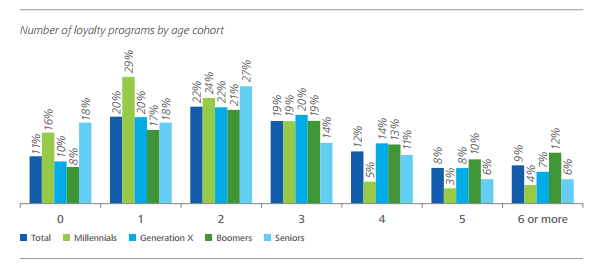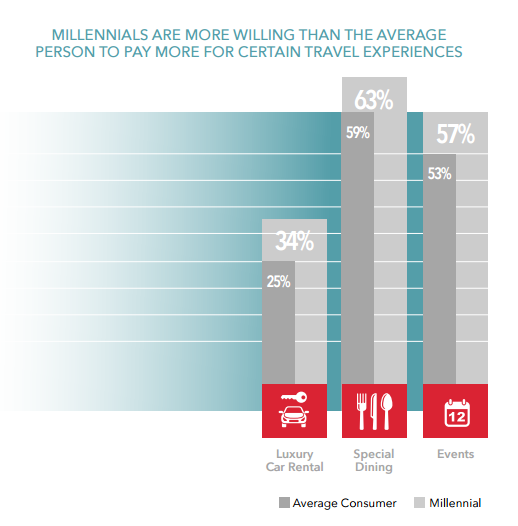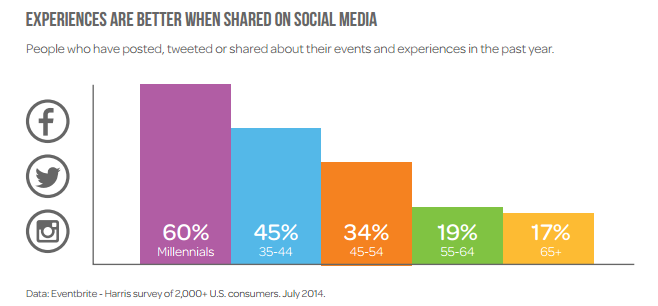The popularity of multi-site booking engines, which present a wide variety of options to guests, has led to a significant decrease in brand loyalty. OTAs now offer loyalty programs, which are similar to the ones hotels offer, providing customers the best of both worlds – flexibility in choosing a hotel based on price and convenience, as well as the added incentive of reaching the promised “free night” after they complete 10 bookings. This contributes to the loyalty crisis hotels are currently experiencing. Last-minute bookings over brand-hidden OTAs, such as Hotwire, enhance this problem.
Most hotels offer their own loyalty rewards programs as a method of improving customer retention. However, these programs are costly, with limited success rates and low ROI. Most travelers subscribe to multiple loyalty programs, with 89% of these memberships reported as active, according to a 2014 survey conducted by Deloitte of over 3,000 high frequency US travelers. As such, travelers do not subscribe to a particular brand, despite the loyalty programs.

Source: Deloitte
While loyalty programs may not be enough to build brand loyalty, that is not to say that brand loyalty cannot be achieved or improved. Hotels would do well to build this loyalty, as once the threshold between non-loyal to loyal customer has been crossed, the hotel will benefit from repeat guests.
In the Deloitte survey, high frequency travelers claimed to have a most-frequented hotel, spending approximately half of their stays at that hotel. With digital budgets invested in retaining customers (45%) almost as high as those invested in converting customers (55%), it is important to understand who these guests are, and how to increase their loyalty to your brand.
Millennials are a key demographic to target
Marketers, in various industries, are focusing today on the 18-34 age group, and with good reason. This demographic segment is comprised of 80 million people in the US, and spends $600 billion annually, according to a 2015 Standards & Poor’s report. By 2025, they will make up 75% of the workforce, accounting for a huge percentage of work-related travels, and therefore are a prime target market for hotels. The United Nations estimates that millennial travelers spend over $180 billion on tourism, annually.
In order to build loyalty in this market group, hotels must focus their customer retention efforts on the factors that are considered vital to these young professionals. Millennials are tech and mobile savvy, and highly connected on social media, across multiple social network platforms. These customers expect exemplary customer service, and prefer experiences to physical rewards.
Four must-do tactics for building brand loyalty
Based on the above characteristics, the following four strategies must be implemented in any hotel’s efforts towards building brand loyalty:
1. Show them how much you appreciate them
Many hotels believe that their rewards programs are a method to show their customers that they appreciate them. However, many people do not find the promise of a free night enough to make them loyal to a particular brand. In fact, 32% of the travelers surveyed claim that they do not choose a hotel based on the number of previously accumulated nights.
Guests feel appreciated when they receive ‘presents’ that are not related to their volume of reservations, necessarily. Use the data you have accumulated on your guests, and gift them something that suits their profile. Discounts to a specific event, or to a meal at an appropriate restaurant. Your guests will associate your hotel’s efforts in understanding them and appreciating their business with your brand name, and you will improve your brand’s loyalty amongst them.
Remember that millennials are the key business-related travelers. If you want them to opt for your hotel, give them an incentive to do so. Offer discounted extra nights after their stay, so that they can extend a business trip, or to include a low-cost vacation after their business has been completed. Alternatively, you can offer a low price for adding a guest in their room, so that they may bring a partner, combining business with pleasure. This obvious appreciation of the guest’s needs may be the incentive to book with you instead of a competitor. With 76% of business travelers saying that they would extend a business trip if offered a discounted rate for additional nights or to add a partner, according to a study done by Collquy, an expert in brand loyalty, this is a strategy hotels cannot afford to ignore.
2. Give them an experience they will remember
Gone are the days when a specific amenity offered in a hotel was the highlight of a trip. Today’s travelers, led by the passionate millennials, are looking for memory making experiences in their travels. 78% of millennials would rather spend money on a memorable experience, than on purchases of “things”, according to a study conducted for Eventbrite. ‘Unique experiences’ was listed as a key factor influencing the preferences of 32% of millennials in regards to hotel loyalty programs, according to Deloitte.
Source: Colloquy
Providing a successful customer experience depends on the level of personalization you can offer your guests. Utilize data on your customers and their market segments to create customer profiles. Customize their visits and offer deals on attractions, which meet their specific profiles. Combine profile-based attractions with those that are locale-specific, creating an experience that suits the guests’ interests with a sentimental element related to the travel destination. An exemplary experience at one destination will build brand loyalty across your chain.
Remember that if you succeed in providing excellent customer service, you will be rewarded almost instantly, with shares and recommendations across various social networks. With the important role of social media in the travel industry, these shares and recommendations of outstanding experiences will further improve your brand and foster new bookings.
Source: Eventbrite
3. Go the extra mile
Today’s tech savvy customers expect an exemplary experience from the get go. This begins the minute they click on your site or Facebook page. Make it easy for guests to communicate with you by providing live chats with customer service representatives. Respond to messages, emails and even complaints in a timely manner, making guests feel as if they play an important part in the improvements you are making. Answer any questions clearly and offer solutions to potential problems guests may have.
For instance, if a guest is arriving from overseas after a long flight, and is due to arrive a few hours before check-in, you should go the extra mile and offer early check-in, at no extra cost for his convenience. There is no doubt that by showing how much you care, the guest will feel appreciated (see item 1) and that this will add to his positive experience at your hotel (see item 2). By solving his problem efficiently, he will likely opt to choose your hotel again, in the future.
After guests make reservations, send them personalized and customized notifications. Provide details of local events, offer information on travel and transportation within your region, and provide suggestions of must-see sites. Once the guest has arrived, don’t stop at a friendly face at the reception guest. Offer assistance in planning day trips, and do whatever you can to create the positive experience that will lead to loyalty.
4. Provide seamless digital experiences
Millennials will expect a flawless, end-to-end experience on your website or mobile site, from when they first arrive all the way through to reservation confirmation. In the above Colloquy study, respondents claimed that sub-par websites would affect their reservation decision. Of those surveyed, 23% would not reserve a trip with a site if it did not offer online booking.
Every travel business should go mobile. An impressive, 71% of travelers answered that they would like to be able to book hotels over mobile devices, according to Colloquy. This is therefore, a booking method, which cannot be ignored. Be sure to integrate mobile payment methods, such as mobile wallets and mobile money, which are increasingly gaining acceptance in today’s mobile-centric world, ensuring the seamless experience today’s guests expect.
Key takeaways
- Millennials are a key market segment for both business and leisure travel.
- Hotels can build their brand loyalty by showing their customers they are appreciated, by offering memorable experiences to their guests, and by maintaining a high level of customer service, from the earliest stages of interest in your brand.
- Mobile savvy millennials expect seamless, end-to-end booking experiences across multiple devices.
- Once hotels have managed to cross the threshold and become a preferred brand, they will be able to enjoy the benefits of return, loyal customers.


